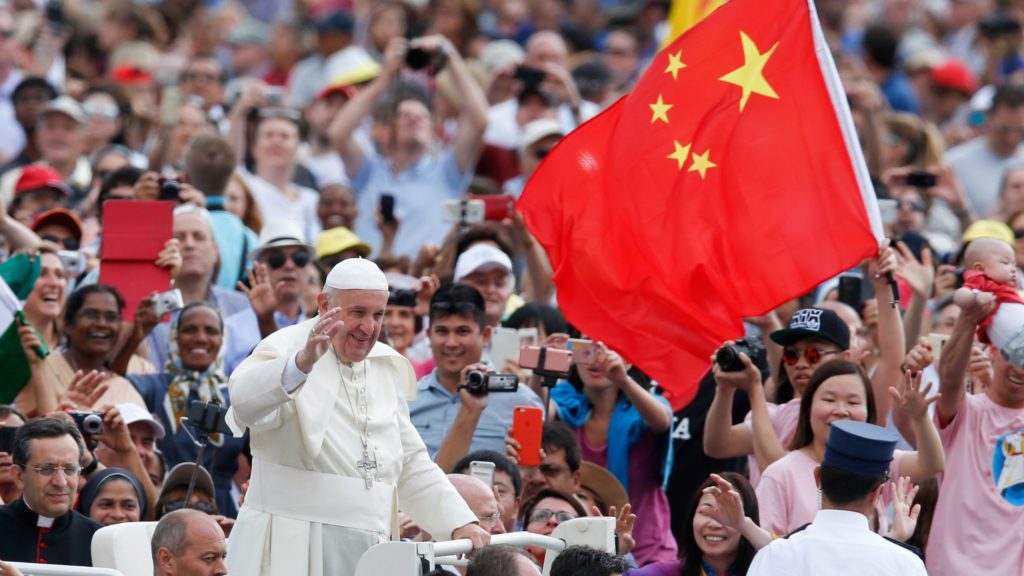Father Thaddeus Wang Yuesheng was consecrated bishop of Zhengzhou, China, on Thursday, bringing an end to a 70-year-long sede vacante.
The Holy See Press Office announced on Thursday morning that Wang was appointed by Pope Francis as the bishop of Zhengzhou on Dec. 16, 2023. The report noted that the decision took place “in the framework of the Provisional Agreement between the Holy See and the People’s Republic of China.”
The Vatican Fides News Agency, which is part of the Dicastery for Evangelization, added that his appointment “was also favored by the direct contribution of the various components of the local Church, according to the criterion of synodality.”
In a statement published on the official website of the Bishops’ Conference of the Catholic Church in China (BCCC), “on March 22, 2022, he [Wang] was elected as the bishop-elect of the Diocese of Zhengzhou.”
Wang was born in the city of Zhumadian in the central Chinese province of Henan on Feb. 27, 1966. He studied at the South Central Seminary between 1987 and 1993 and was ordained a priest on Oct. 17, 1993.
From December 2011 he was a parish priest in the Huiji District, in Zhengzhou, as well as chairman of the Henan Catholic Patriotic Association and deputy director of the Academic Affairs Committee. In January 2013, he was elected as the rector of the Diocese of Zhengzhou.
The appointment of the 58-year-old Wang marks a change since the Diocese of Zhengzhou has been without a bishop since the 1950s.
The Diocese of Zhengzhou was erected on April 11, 1946, in accordance with Pope Pius XII’s apostolic constitution, Quotidie Nos, which established an official hierarchy for the Chinese Church.
In the same year, the Italian-born Xaverian missionary, Faustino Tissot, was appointed bishop of Zhengzhou. Following the establishment of the People’s Republic of China in October 1949, the Chinese Communist Party (CCP) implemented a campaign to isolate the local Church from Rome by expelling foreign priests, missionaries, and bishops.
In 1953, Tissot and 16 other foreign priests were expelled, leaving the diocese functionally vacant. The running of the diocese was continued by six Chinese priests, which continued until Mao Zedong’s Cultural Revolution when all religious activity and celebration was suspended and churches were forced to close.
Following the death of Mao in 1976, Deng Xiaoping became the paramount leader and inaugurated a period of “opening up,” which allowed for the nominal restart of religious activity. Several churches were opened and a few more were constructed in Zhengzhou and all across mainland China.
According to the BCCC statement, the Jan. 25 episcopal ordination took place in the church of Qinghuayuanlu, dedicated to Our Lady of Lourdes. The Mass was concelebrated by the bishop of Shanghai, Joseph Shen Bin, Bishop Yang Yongqiang, Bishop Zhang Yinlin of Anyang, and the bishop of Nanyang, Peter Jin Lugang.
The statement added that more than 300 priests, nuns, and faithful from all the dioceses in the province had participated in the liturgy.
Shen serves as the vice chairman of the state-controlled Chinese Catholic Patriotic Association (CCPA) and is chairman of the BCCC.
Shen was at the forefront of a row between the Holy See and the PRC when he was appointed bishop of Shanghai in April 2023 without the papal mandate, thereby breaking the terms of the 2018 Sino-Vatican Accord.
In July 2023, the Vatican’s secretary of state, Cardinal Pietro Parolin, announced the pope’s decision to regularize the episcopal appointment to “remedy the canonical irregularity created in Shanghai, in view of the greater good of the diocese and the fruitful exercise of the bishop’s pastoral ministry.”
Shen has been a leading voice for the sinicization of the Church, a process that entails not only enculturating the faith into the context of Chinese society but also bringing it into line with the official practices of the CCP.
The Sino-Vatican Accord is a provisional agreement and is subject to modifications when it is up for renewal every two years. It went into effect in 2018 and was renewed for the first time in 2020 and for a second time in 2022. It is up for renewal in October 2024.

